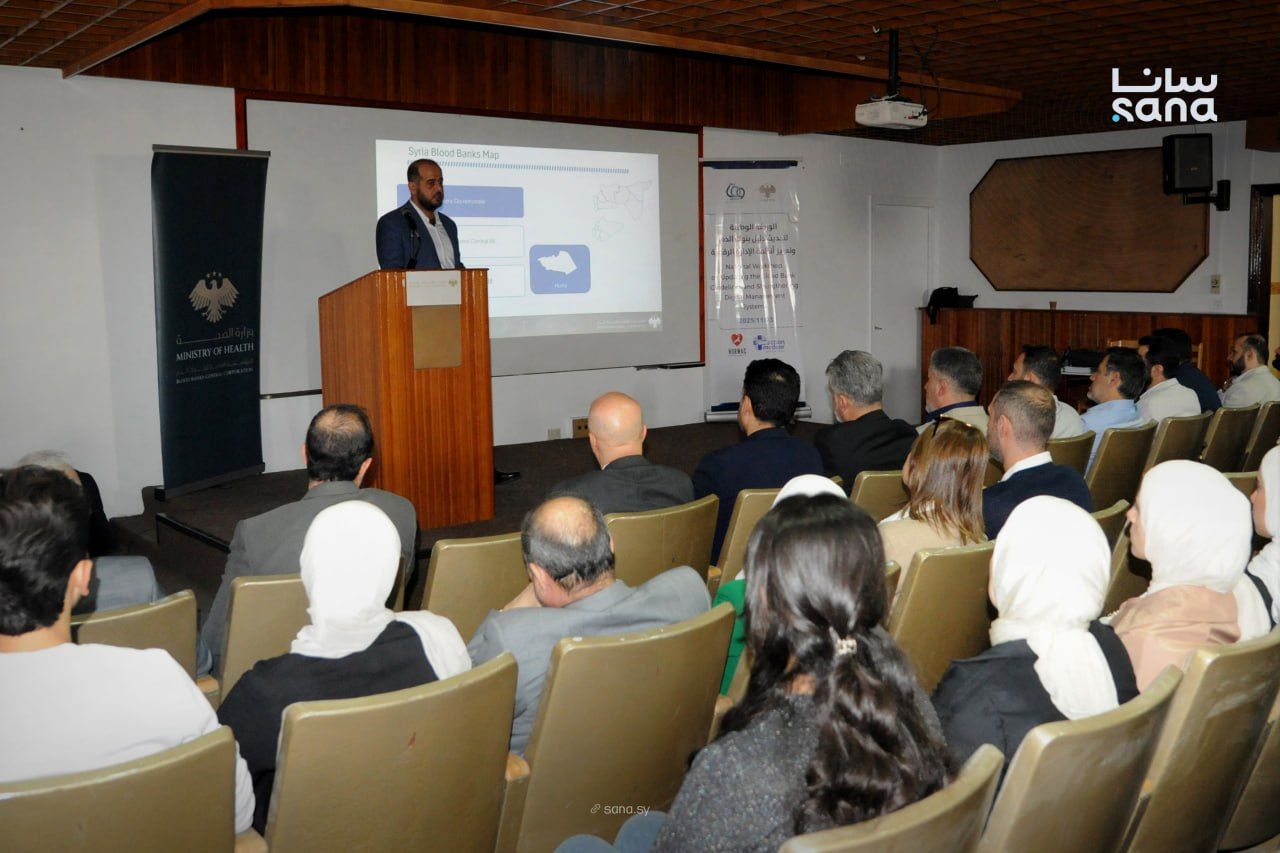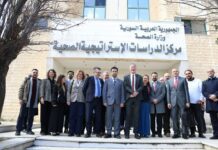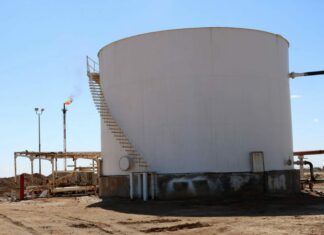 The Syrian Ministry of Health, in cooperation with the humanitarian organization Watan, held a workshop in Damascus aimed at modernizing the national blood bank system and advancing digital management practices.
The Syrian Ministry of Health, in cooperation with the humanitarian organization Watan, held a workshop in Damascus aimed at modernizing the national blood bank system and advancing digital management practices.
The initiative seeks to establish a unified roadmap for blood banks across the country, strengthen their digital infrastructure, and standardize operational procedures. It also includes drafting an emergency response manual and a donor management system to improve efficiency and transparency in the sector.
Reform Efforts and Strategic Priorities
Health Minister Dr. Musab al-Ali emphasized the essential role of blood banks in supporting citizens’ health needs, describing them as “a vital and sensitive sector that directly serves people’s lives.” He noted that despite ongoing challenges, including limited staff and resources, significant progress has been achieved over the past nine months.
According to Ali, the ministry is transitioning from emergency response to a phase focused on modernization, system integration, and digitization. “This stage is about strengthening institutional structures, reducing waste, and combating corruption,” he said. He added that the ministry is enhancing coordination with other key institutions, including the Ministries of Defense, Interior, and Higher Education, as well as international partners, in line with the government’s broader healthcare development strategy.
National Digital Transformation Guide
Muhammad al-Kanass, General Director of Watan, announced that the organization is collaborating with the Health Ministry to develop a comprehensive national guide that sets out standard operating procedures for all blood banks. The guide aims to ensure quality, safety, and rapid response while supporting a digital transformation strategy that enables local teams to effectively manage and monitor blood supplies.
Kanass explained that Watan also launched a training program for blood bank staff nationwide to build technical skills and strengthen operational capacity. He added that restoration work is underway at blood banks in Aleppo, Idlib, Hama, Tartus, Quneitra, and Daraa, with the goal of achieving service unification and consistent quality standards across all Syrian regions.
Restoration and Expansion Efforts
Dr. Mustafa Jazi, General Director of the General Authority for Blood Banks, said the authority is implementing corrective measures in line with its establishment decree, including standardizing transport mechanisms and ensuring timely blood delivery to health facilities.
Jazi noted that a comprehensive evaluation of equipment, infrastructure, and digital needs is currently being carried out. The authority is working closely with Watan, which initially operated in northwestern Syria and has since expanded its efforts to cover the entire country. Currently, there are 36 blood banks operating nationwide.
He confirmed that plans are in progress to reopen long-inactive facilities in eastern Syria, including in Bukamal, Mayadeen, and Palmyra, where the national hospital recently resumed service.
Watan, active in Syria since 2011, has played a key role in establishing a resilient network of blood banks and continues to contribute innovative solutions to strengthen the country’s healthcare infrastructure.








